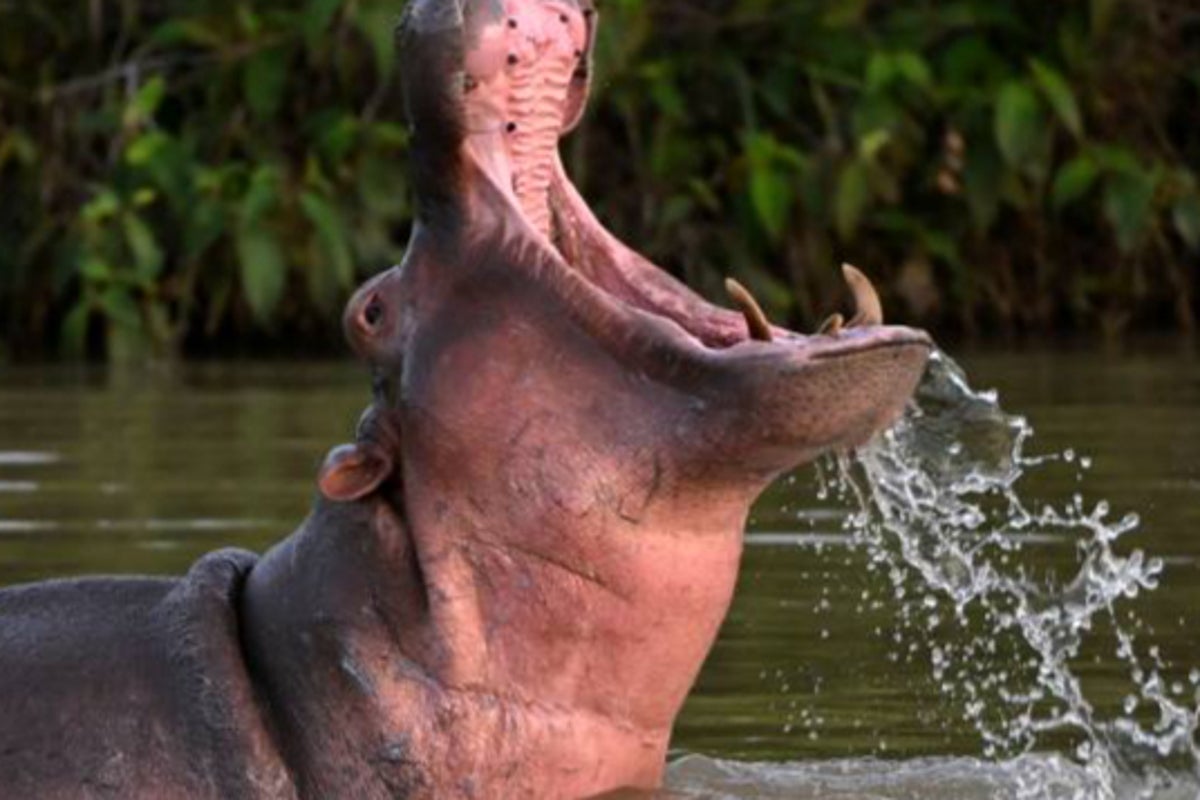
Victims of Colombia’s decades-long armed conflict have controversially been given swathes of land from drug baron Pablo Escobar’s ranch, famed for its ‘cocaine hippos’.
President Gustavo Petro said on Wednesday that part of the sprawling 4,000-hectare (10,000-acre) Hacienda Napoles estate in northwest Antioquia department had been “recovered” for “the victims”.
The government said that 120 hectares (297 acres) of land had been handed over to local women farmers. Farming families received a land loan from the local municipality in 2017, but were later evicted by police, according to the national government.
Petro, who leads Colombia’s first Left-wing government, had asked in May that Escobar’s estate be included in a land reform programme, handing over some properties owned by drug traffickers to rural Colombians.
“I want … above all, for that hacienda to return to the hands of the rural farmers,” he said, announcing the plan in Barrancabermeja on May 23.
Land reform has been a central focus in efforts to end the prolonged conflict in Colombia. But the move was met with backlash from tourism groups.
More than three decades after Escobar was shot dead by police in Medellin, his estate has become a thriving theme park and zoo.
Escobar, once ranked the seventh richest man in the world, invested part of his fortune importing a menagerie of exotic animals, including zebras, giraffes and four hippopotamuses.
Many died or were taken to zoos after Escobar was shot dead, but the hippos thrived. They now number around 150, but officials estimate there could be as many as 1,000 roaming Colombia by 2035.
Petro said in May that it would be “of public utility” to “return” the land as “so many animals were brought into the zoo that it is a health problem, a danger to society”.
“That hacienda has so many deaths that it must be returned to the people,” he added.
Colombia has declared the hippos an invasive species and is considering sending them oversees. But rounding up and deporting them could cost as much as $3.5 million, CBS reports.
The impact of partitioning the estate on tourism would also be significant. On June 4, some 1,500 people blocked the Medellin-Bogota highway, connecting the country’s two largest cities. Closing the park would affect not only the operators, but local businesses, too.
Land reform remains a sticking point in resolving historic conflict in Colombia. For decades, clashes between various governments, Left wing guerilla groups, Right wing paramilitary groups and drug traffickers blighted the country.
A final peace deal was signed between the Left-wing FARC and the Colombian Government in November 2016. Comprehensive land reform was listed among the goals, but progress has been slow, breeding resentment from farmers promised land.
Petro has managed to redistribute some 570,000 hectares of land to peasants, according to Progressive International. The Havana peace deal assures some three million hectares would be given to peasant farmers.
The wider conflict in Colombia, stretching back to the 1960s, left an estimated 220,000 people dead and almost seven million displaced.
